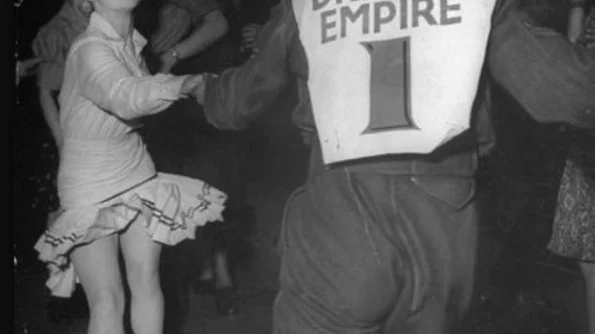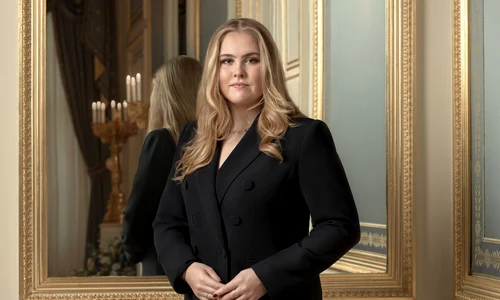
How the British spent their spare time during the WW2
Contrary to popular belief, whereas entertainment is concerned, the British lived during the WW2 almost the same as in peace time. This way, although the cities they inhabited were or had been already subjected to the Luftwaffe bombings, the English kept on going to the theatre or to the cinema;they read or listened to classical music on BBC. These outlets offered an escape from the dramatic reality of the war. The English people lived every day with the possibility of a sudden violent death, of losing their families, their houses or lifestyle.
Radio and Music – Making Everyday Life Bearable
Everybody-people in the civil service, soldiers in their barracks, women preparing food in their kitchens, people waiting for the bus or buying groceries – listened to the radio, especially the British Broadcast Channel[1]. The British Government allowed the BBC to broadcast only on its radio channel so as to minimize the psychological impact of the war. This way, in addition to the Home Service, the BBC launched in January 1940 the Forces Programme[2]. Even though its target audiences were the soldiers, the Forces Programme was a hit with the people between 16 and 20 years of age.
BBC broadcast shows such as It’s That Man Again(a war effort parody), Music While You Work(music for industrial workers), Sincerely Yours, Ack Ack-Beer Beer, Brain Trust, Hi Gangor Band Waggon[3]. These gained the BBC considerably larger audiences (more than 10 million people) than the elites of the interwar period.
Also, the Listener Research service revealed that a large number of Englishmen tuned in for the BBC’s classical music programs. This made the BBC extend the broadcasting hours of such programs. The British became interested in classical music, because it “wasconcerned with a seriousness of living and dying with which they themselves had suddenly been confronted”.The Spectator writes that “the war has undoubtedly re-created music in our midst, affirming it a living force vital to the needs of a great people.[4]”
Moreover, the British composer Vaughan Williams wrote his symphonies in keys which symbolized the feelings the war created in every Englishman’s heart. The keys of D Major and F Minor are associated with a life-affirming character, calmness and relaxation;discord, death and hell respectively. The ultimate effort of the British people on the home front was encapsulated in Johann Sebastian Bach’s E Minor key of Crucifixion[5].
Dance – The Antidote To War Apathy
Ballroom dancing declined, however, informal dancing was booming in work canteens, fire stations, naval and military bases. Londoners ignored the Luftwaffe almost completely and invaded the dance hall rooms in the capital such as the Lyceum, Hammersmith Palais, Paramount or Tottenham Court Road.
The British learned to do the jitterbug, a dance style brought from across the ocean by the ever-growing number of American soldiers. Liverpool native Elsie Thompson was taught to dance at the Burtonwood US Air Force base and she remembers that “once you’d learned to do the jitterbug there was just nothing else for it. It was marvellous. They’d throw you over their shoulder and throw you under their knees and it was absolutely fabulous, really lovely. You’d dance your heart out and forget everything for a few hours[6]”.Her recollection sums up the desire of the British people to escape the war by abandoning themselves to a dance craze.
Literature – Worlds Unaffected by War
The blackout (partial or total shutdown of the street and house lights so as to avert the Luftwaffe bombing) determined a steady decline in the number of readers, however, a 1944 Mass Observation study refuted this in the case of servicemen. Because boredom set in while waiting for new orders in case of a German attack, the servicemen resorted to escapist, adventure and romantic literature. The book that fit this description perfectly was the wartime best seller No Orchids for Miss Blandish[7]byHadley Chase. Literature’s most important role was to create alternative universes unaffected by the war.
Movies – Another World
Going to the cinema was another way of spending the time not devoted to the war effort. Because they could easily become targets for the Luftwaffe, the cinemas were closed down at the beginning of the war, only to be opened up after a few days. Although the war tax on entertainment made the tickets more expensive[8], the British went more than once a week to the cinema. This way, the tickets sold weekly reached a number between 25 and 30 million[9].
The British crowded the cinemas even at times not favourable to watching movies such as the Luftwaffe-unleashed Blitz over the UK[10]. People desperately needed to be transported to a magical world which was different from what they lived every day. The 1942 American movie Gone With the Wind was the box office hit of the WW2 in Britain and it was screened in London’s West End until 1944. The English also liked movies such as Casablanca or Rebecca.
The Films Division of the Ministry of Information inserted propagandistic messages into the movies released by the English Studios and this way, they could not compete with Hollywood-produced films. A Mass Observation study revealed that movies such as The Lion Has Wings, Pastoral Hallor Pimpernel Smithreleased in 1939, 1940 and 1941 respectively were not what the public enjoyed. As in the case of literature, the British preferred movies which allowed them to escape the harsh, stressful and tiring reality of war.
Bibliography
- Donnelly, Mark, Britain in the Second World War, Routledge, Britain, 1999
- Hayes, Nick, „An English War, Wartime Culture and Millions Like Us”, in:Nick Hayes, Jeff Hill, Millions Like Us? British Culture in the Second World War, Liverpool University Press, UK, 1999, pp. 1-32.
- Mackay, Robert, Half the Battle:Civilian Morale in Britain during the Second World War, Manchester University Press, UK, 2002
- Mackay, Robert, Safe and Sound:New Music in Wartime Britain, in:Nick Hayes, Jeff Hill, Millions Like Us? British Culture in the Second World War, Liverpool University Press, UK, 1999, pp. 179-208.
- Mackay, Robert, The Test of War:Inside Britain 1939-45, UCL Press, UK, 1999
[1]Robert Mackay, The Test of War:Inside Britain 1939-45, p. 182
[2]Ibid., p. 158
[3]Ibid.
[4]Robert Mackay, The Test of War:Inside Britain 1939-45, p. 187
[5]Cf. Robert Mackay, Safe and Sound:New Music in Wartime Britain, in:Nick Hayes, Jeff Hill, Millions Like Us? British Culture in the Second World War, Liverpool University Press, UK, 1999, pp. 323-335, p.202
[6]Robert Mackay, The Test of War:Inside Britain 1939-45, p.
[7]Nick Hayes, An English War, Wartime Culture and Millions Like Us”, p. 11
[8]Mark Donnelly, Britain in the Second World War, p. 78
[9]Robert Mackay, The Test of War:Inside Britain 1939-45, p. 186
[10]Ibid., p. 186















